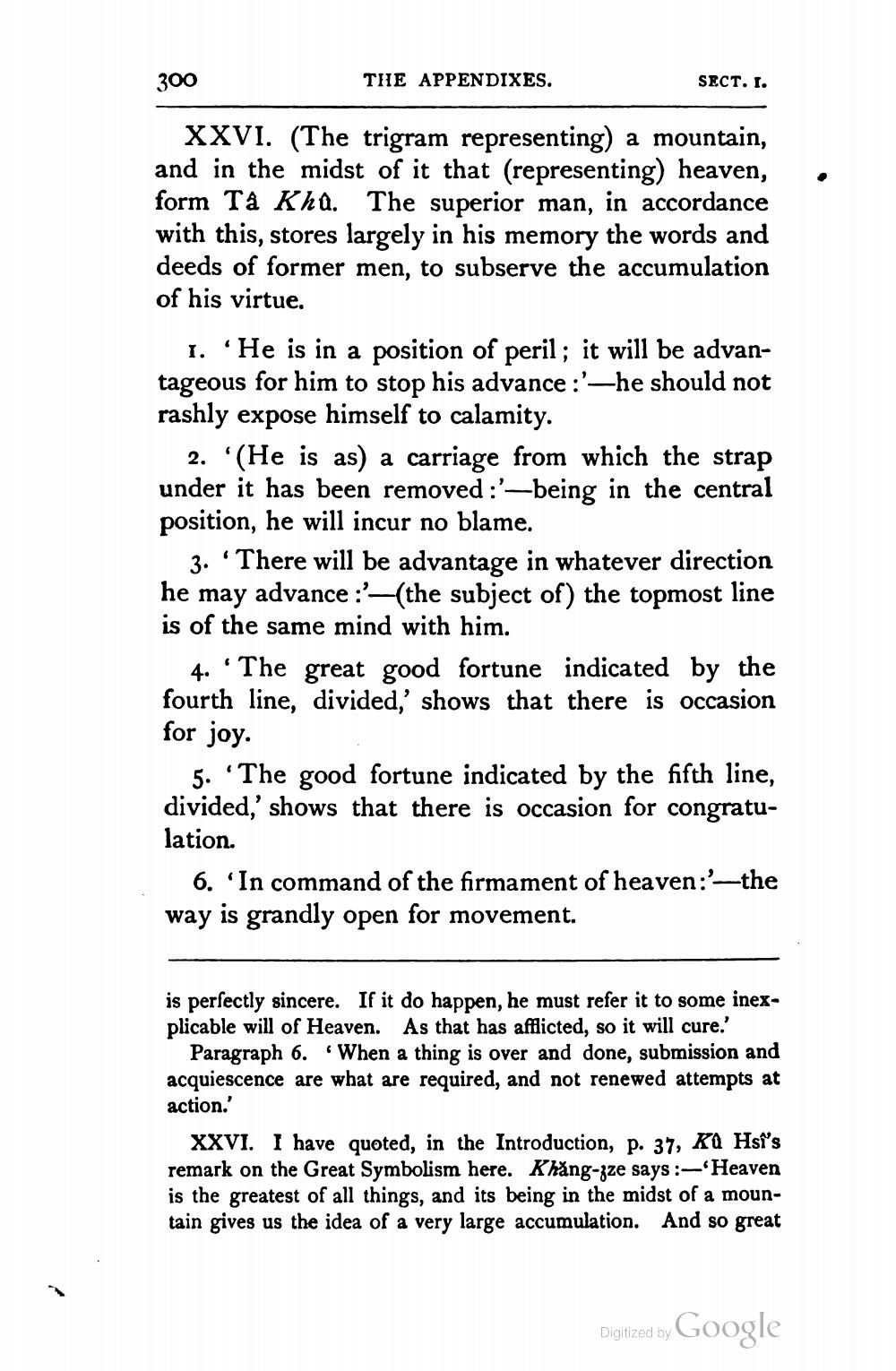________________
300
THE APPENDIXES.
SECT. I.
XXVI. (The trigram representing) a mountain, and in the midst of it that (representing) heaven, form Tà Khů. The superior man, in accordance with this, stores largely in his memory the words and deeds of former men, to subserve the accumulation of his virtue.
1. “He is in a position of peril; it will be advantageous for him to stop his advance :'-he should not rashly expose himself to calamity.
2. '(He is as) a carriage from which the strap under it has been removed :'-being in the central position, he will incur no blame.
3. “There will be advantage in whatever direction he may advance :'-(the subject of) the topmost line is of the same mind with him.
4. 'The great good fortune indicated by the fourth line, divided,' shows that there is occasion for joy.
5. The good fortune indicated by the fifth line, divided,' shows that there is occasion for congratulation.
6. 'In command of the firmament of heaven:'--the way is grandly open for movement.
is perfectly sincere. If it do happen, he must refer it to some inexplicable will of Heaven. As that has afflicted, so it will cure.'
Paragraph 6. When a thing is over and done, submission and acquiescence are what are required, and not renewed attempts at action.'
XXVI. I have quoted, in the Introduction, p. 37, KQ Hsi's remark on the Great Symbolism here. Khăng-xze says:- Heaven is the greatest of all things, and its being in the midst of a moun tain gives us the idea of a very large accumulation. And so great
Digitized by Google




